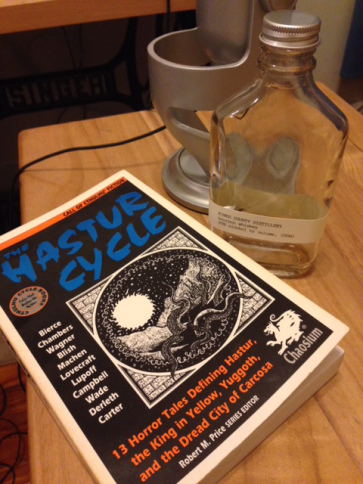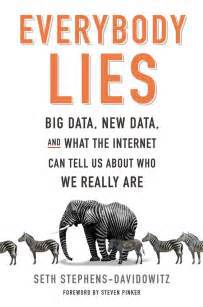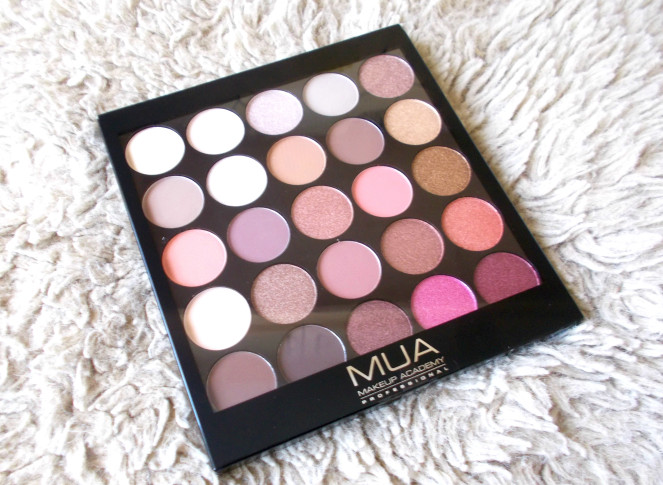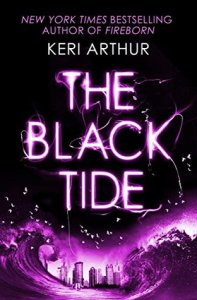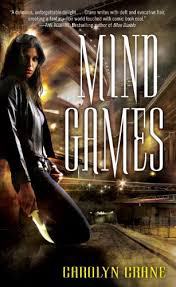How one defines classic albums is an argument on relativity. Some music fans will deem albums better than others based on its recognition among a wide audience, and others use a system that utilizes personal experience with a body of work. Here at Hell of a Thing, we typically go with the latter although we have been known to side with the wide audience at times. For the final installment of this series, I want to direct the reader’s attention towards an album that didn’t receive massive critical acclaim when it dropped, and to this day it’s a cult classic at best; The Sword’s Age of Winters.
Proceeded only by a demo, Age of Winters came out in 2006 on Kemado Records after the band established themselves as a staple in the Texas scene. Because of vocalist J.D. Cronise’s stubbornness to not just be an opening act (unless on special occasion), the band has since been recognized only on a smaller scale. Their fan base has stayed true through the years, and their independent status allows the quartet to not play victim to major label downfalls. While the overall sound and subject matter has changed over the last decade or so, The Sword’s first few albums still remain a favorite for this writer, especially Age of Winters.
The first time I heard The Sword is probably the same time a lot of people heard them, in Guitar Hero II. While the video game featured music many already knew, there was one song that seemed oddly placed between the classic rock and contemporary hits. If you’ve never played the game, the song was Freya, track three on Age of Winters. I never played video games much as a kid but Guitar Hero was so much more than a game because it turned my whole generation on to a world of music most of us hadn’t heard. Not to toot my own horn, but thanks to my parent’s extensive music collection and accessibility to the radio, I heard the majority of Guitar Hero’s music beforehand but it was different with The Sword. I was curious as to how a band myself nor any of my friends had ever heard made their way on to such a popular video game. The other thing about the band that mystified me was that the one song I had heard by them struck something deep inside.
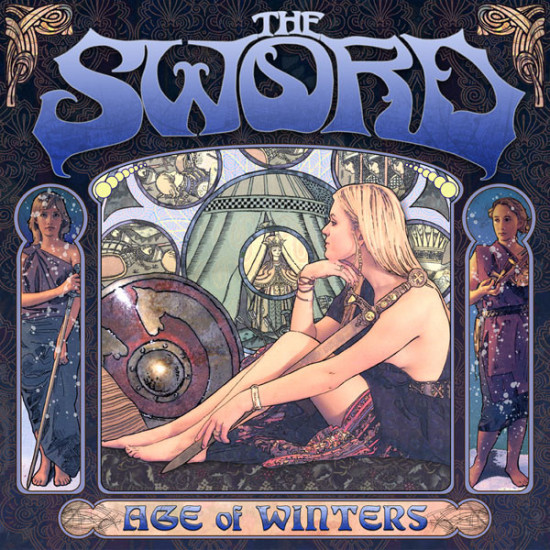 Courtesy of Kemado Records
Courtesy of Kemado Records
I have liked metal for a long time, probably since eighth grade. Since the first time my childhood friend gave me a copy of Black Sabbath’s Paranoid, I’ve been hooked on the primal energy and technical versatility that most genres don’t have as much of. The only thing was, was that I didn’t have much access to other great harder bands that matched the energy of Black Sabbath, Led Zeppelin, or the early work of Metallica. The only other way for me to hear heavy music was on my local rock radio station in my home town. At first this sufficed, but after a while everything seemed washed out or bland. Metal of my own generation seemed wimpy but I only thought this because I hadn’t discovered the underground yet. Stumbling onto The Sword, whose sound checked every box for me, was the key to the world of underground metal, and thus underground music in general. Through websites and message boards I found Age of Winters, and also discovered so many other musicians that continued the traditions of early hard rock; a flow chart of people that all seemed interconnected by common influences similar to my own. Truly, I believe uncovering Age of Winters is what turned me into a music nerd; someone who sought out his own music rather than allowing it to be spoon-fed.
If you’ve never heard the album, it’s like this; detuned guitars, tribal percussion, and mythological lyricism. It’s a sludge metal album by all accounts, not a ground breaking one, but a perfect example of the subgenre. Droning guitars are an element of sludge metal but The Sword utilized this in a different way. By writing all the songs on Age of Winters in the same key (C), this creates a feeling as though the entire album is one big song, the nine tracks merely being movements within it. The LP was also recorded, in laymen’s terms, loud. To this day, I think it’s one of the most full-sounding records, occupying any available space, making it impossible to converse while it plays in the background. In this writer’s opinion, this should be the case with all metal music; a genre that shouldn’t be commodity, but rather an experience.
 Courtesy of Magnet Magazine
Courtesy of Magnet Magazine
As I’ve stated in other articles within this series, it’s tough to pick favorite songs on your favorite albums. This idea alone should be what decides classics; making it through a record without skipping a song. However, I always air drum a little harder for Winter’s Wolves, Lament for The Aurochs, and sing a little louder with the songs The Horned Goddess, and Ebethron. I think at one point, I probably learned every song from Age of Winters on guitar which also turned me onto drop-c tuning.
So why should everyone own this album? This is a difficult because I don’t think everyone should. Other than being a heavy masterpiece in my own opinion, Age of Winters is special because of its cult status. Apart from having some of the best music I had heard up until that point, what drew this writer to The Sword was the fact that no one else had heard of them, it felt like they were my band because no one else in a large radius had their CD but me. I’ll say this, if you enjoy abrasive, yet melodic guitars over pummeling drums, Age of Winters is for you.
There are classic albums generally regarded as such, and then there’s albums only classic to certain pockets of people. In this short series, we’ve gone over both and have hopefully given more power to the fans by doing so. We hope you enjoyed reading about my favorites and feel free to comment any of yours.
Click here to listen to Winter’s Wolves.
– By Mike Metcalf
Advertisements Share this: